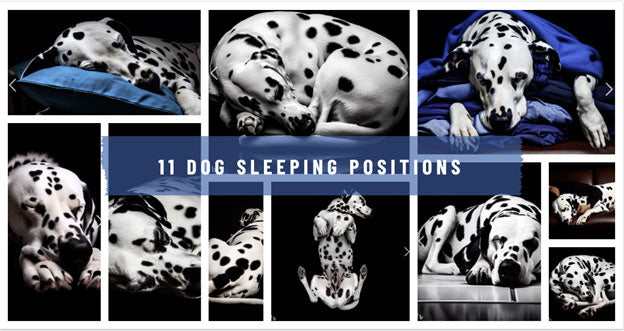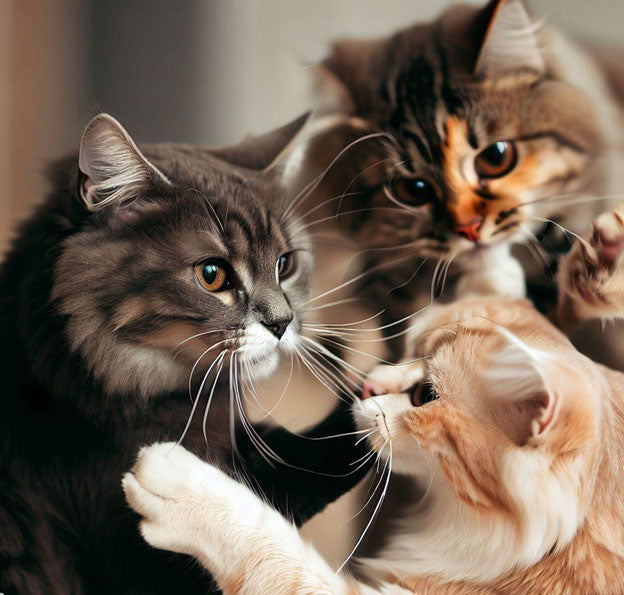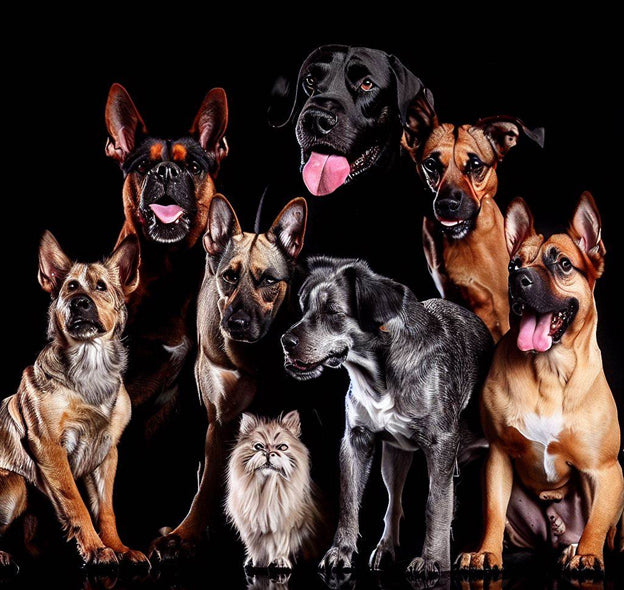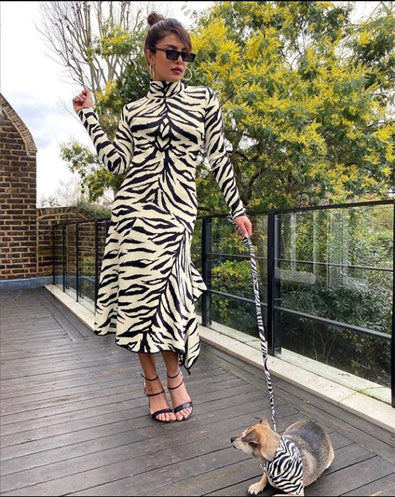
Canine Culture: How Different Cultures Celebrate and Honor Dogs
Disclaimer: Some of the links in our blog posts are affiliate links. This means we may earn a small commission if you make a purchase through them which helps support our blog, at no extra cost to you.
Dogs hold vital roles across cultures as loyal companions, protectors, and embodiments of virtues. Found in myths, traditions, and celebrations, they're integral to the fabric of human societies. Furthermore, dogs serve individuals with disabilities, reflecting their noble qualities of loyalty, courage, faithfulness, and devotion. This canine culture symbolizes virtue and character diversity globally.
Interestingly, dogs guided souls in the afterlife. In Greek mythology, Cerberus, a multi-headed dog, guarded the underworld's entrance. The Roman goddess Diana's association with dogs linked them to hunting and loyalty. Norse, Celtic, and Asian cultures emphasized their protective and fortunate symbolism. The Chinese zodiac's Year of the Dog signifies loyalty and honesty. The Hindu god Dharma embodies duty and righteousness through dogs.
Native American tribes revered dogs' hunting prowess and companionship, integrating them into creation stories and rituals. Modern dog culture continues with global festivals like Japan's Shichi-Go-San, which celebrates children's growth alongside loyal canine companions, and Mexico's Dia de los Perros, which honors dogs and their loyalty.
To dig into the fascinating world of canine culture and its paw-print on history, keep reading!To dig into the fascinating world of canine culture and its paw-print on history, keep reading!
Ancient Civilizations & Dogs
In ancient Egyptian mythology, the God Anubis was depicted with a canine head and was considered the guardian of the afterlife. Dogs were also revered for their protective qualities and were often buried alongside their owners. The cultural significance of dogs was predominant in ancient civilizations.
Ancient Egyptian Dogs
Dogs played a significant role in Ancient Egypt, despite the prominence of cats. The god Anubis, depicted with a wolf's head, was worshiped at the temple at Hardai, where dogs roamed freely and were treated as cherished town companions. The Ancient Egyptians cherished and grieved over dogs in death, often leading to proper burials and even enshrinement for wealthy families. Prominent breeds like the noble Saluki, the regal Pharaoh Hound, and the unique barkless Basenji trace their origins back to Ancient Egypt.

Anubis
During the Egyptian civilization (3100 BC - 332 BC), dogs were highly esteemed. This is evidenced by the limestone Anubis statuette from Saqqara (Late Period c. 750-332 BC) found during EES excavations. While Anubis garnered recognition as one of the foremost Death Dogs, also known as Jackal Gods, he was not the sole entity. He frequently collaborated with figures like Wepwawet and Duamutef, among others, regional deities revered over the centuries. Anubis is one of the most important dogs in mythology.
Duamutef
Duamutef, too, played a protective role, overseeing the canopic jars containing the internal organs of the mummified deceased. His duty held immense significance, positioning him as one of Horus's four sons—Horus, the god of war and sky, characterized by a falcon head.
Wepwawet
The name Wepwawet roughly translates to "Opener of the Ways." His task encompassed guiding the recently departed through a treacherous journey within the afterlife, leading to their final judgment. He often partnered closely with Anubis and was revered even by the ancient Greeks and Romans who reigned over Egypt.
Fascinated with Egyptian dog Culture?
You’ll love our Pharaohs of Egypt-inspired Custom Pet Portrait Canvas
Ancient Roman Dogs
In Roman mythology, dogs played intriguing and often symbolic roles, embodying loyalty, protection, and connection to the divine. Here are a few mythological Roman dogs of note:
The Festival Of Lupercalia
In ancient Rome, the Lupercalia festival blended fertility and purification rites, featuring the unique role of canines. Dogs, linked to wolves and protective qualities, symbolized nurturing and safeguarding. The Lupercal Cave, where Romulus and Remus were nurtured by a she-wolf, highlighted this connection. Through Lupercalia, dogs' legacy as symbols of guardianship and life endured, emphasizing their timeless significance in human history.
Laelaps
In Greek and Roman mythology, Laelaps, the Dog, is known for its incredible speed and infallible tracking abilities. This creature could never be caught, no matter how swift the pursuit. Faced with the paradox of an unstoppable hunter chasing an uncatchable prey, Zeus turned them both into stone, ending their legendary chase.

Cerberus
Cerberus is a famous multi-headed hound in Greek and Roman mythology. It guards the underworld and prevents souls from leaving or intruders from entering. It is depicted with three heads and a snake for a tail. Roman mythology also features Cerberus, who plays a similar role as his Greek counterpart, serving as a formidable obstacle in the realm of the dead.
Maera
According to Roman myth, Aeneas journeyed to the underworld to seek guidance and wisdom from his deceased father. Along the way, his loyal dog Maera accompanied him, symbolizing their unbreakable bond even in the afterlife.
Feronia and the Dog
In some myths, Feronia, the Roman goddess of fertility, agriculture, and travelers' protection, was accompanied by a dog. The dog symbolizes guardianship and loyalty, reflecting the goddess's attributes. Feronia was highly regarded throughout ancient Rome, indicating her significance in various aspects of life.
Hecate and Her Dogs
Although Hecate is a Greek goddess, she is also recognized in Roman mythology. Depicted with loyal dogs by her side, they guide her through the night and help her navigate the realms of magic and the supernatural.
Fascinated with Rome’s dog culture?
You’ll love our Old Renaissance-inspired Custom Pet Portrait Canvas
Dogs in Asian Cultures
In some Asian cultures, dogs are symbols of fortune and protection. For instance, the Chinese zodiac includes the Year of the Dog, representing loyalty and honesty. In Hindu mythology, dogs are associated with the god Dharma, symbolizing duty and righteousness.

China
Dogs were domesticated in China 15,000 years ago for practical purposes like guarding, transportation, herding, hunting, and food source. Archaeological findings show evidence of domestication from dog remains in Neolithic burial sites and refuse heaps.
In contemporary China, symbolic straw dogs have transformed into lion-dog statues, called Foo-Dogs. Influenced by Indian Buddhism, these statues replaced straw dogs for protection. Foo-Dogs symbolize yin and yang energies, safeguarding inhabitants and structures. This tradition continues in lion-dog statues outside restaurants, signifying defense against negativity.
Ancient beliefs in the afterlife's influence persisted. Dogs were seen as strong protectors against disruptive spirits. The dog is the Chinese zodiac's 11th sign, representing playfulness, loyalty, and protection. Those born under this sign embody honesty, loyalty, and prosperity.
This cultural reverence aligns with Tomb Sweeping Day during the Qingming Festival, now extended to pets like dogs. The Chinese view dogs as valuable resources with deep cultural ties, manifesting through modern practices and gestures.

Japan
Japan's cultural tapestry features Hachiko, the Akita dog embodying unwavering loyalty, reflecting the nation's deep reverence for canines through shrines and festivals.
Hachiko's story starts in the 1920s when he faithfully awaited his owner's return at Shibuya Station, continuing even after the owner's passing. His loyalty for nearly a decade earned him a special place in hearts, symbolizing commitment and the strong bond between humans and dogs.
This reverence resonates in canine shrines like Chiba's Nihon-ji Temple, which honors the guardian deity Koyasan. The Tōrō Nagashi Festival in Tokyo floats lanterns shaped like dogs on the Sumida River to remember departed pets. Inu-no-hi (Dog's Day) on February 1st is a nationwide celebration of dogs, expressing love and marking a new beginning for humans and their loyal companions.
Fascinated with Japan’s dog culture?
You’ll love our Cute Pet Portraits Inspired by Japan

India
In India, dogs hold cultural significance beyond companionship, appearing in mythology and canine folklore. Indian mythology features dogs in various symbolic roles. Lord Bhairava, a fierce form of Lord Shiva, is often depicted with a loyal dog as his companion. This representation underscores the qualities of vigilance and loyalty as key virtues in one's spiritual journey. Dogs are also associated with Dharma, the deity of righteousness, in the Mahabharata, signifying the importance of guarding righteous conduct.
It is believed that dogs possess a keen sense to perceive spirits, rendering them capable of navigating the mystical realms between life and death. This belief has led to a prevalent practice of feeding stray dogs as an act of virtue, resonating with the idea of facilitating a safe passage for departed souls.
Fascinated with India’s dog culture?
You’ll love our Royal Indian Prince-inspired Custom Pet Portrait Canvas

Nepal
Nepal's cultural tapestry features the heartwarming "Kukur Tihar" or "Festival of Dogs," a tribute to the bond between humans and their loyal companions. Part of the Tihar festival, Kukur Tihar spans five days, with the second dedicated solely to dogs.
On this day, dogs are adorned with marigold garlands and receive a tika on their foreheads as a symbol of loyalty and appreciation. Lit oil lamps further honor these devoted animals, emphasizing their significance in people's lives.
Indigenous Tribes & Canine Companions
Indigenous communities worldwide share a spiritual bond with dogs that goes beyond practicality. Native American tribes and Indigenous Australians use dogs as both practical allies and mythic symbols.

Native American Tribes
Throughout history, Native American tribes have held dogs in high regard for their multifaceted roles as practical companions and spiritual guides. These loyal animals played an integral part in daily life, assisting with hunting, guarding territories, and offering warmth during chilly nights. However, beyond their physical contributions, canines held an esteemed spiritual status in certain tribes.
They were believed to have the unique ability to bridge the physical and spiritual worlds, with their heightened senses and instincts guiding them to navigate both realms. As such, dogs were considered spiritual allies and protectors, revered for their ability to offer guidance and protection to their human counterparts.

Indigenous Australian Myths
In Indigenous Australian cultures, dingoes hold deep cultural significance with stories and myths woven into the fabric, offering insights into the complex relationship between humans and these animals. Dingoes are important in creation stories, where they are depicted as ancestral beings who helped shape the land. They also represent the delicate balance between nature and humanity.
Additionally, Indigenous Australians have practical uses for dingoes, such as hunting companions and sentinels against potential threats. The dingo's role in Indigenous Australian cultures is complex, representing the challenges of colonization and the ongoing tension between tradition and modernity as they interact with domestic dogs and livestock.
Europe and The Canine Connection
Dogs have left an indelible mark on European cultural narratives and historical significance. Two countries, Ireland and Russia, stand out for their unique stories and deep appreciation for the canine companions that have shaped their histories.

Ireland
In the lush greenery of Ireland, the Irish Wolfhound is both a legend and a symbol of the country's heritage. These dogs, known as "gentle giants," were revered in ancient times for their size, strength, and loyalty. Legends surrounding the Irish Wolfhound reveal their valiant roles as protectors and hunting companions.
In historical contexts, they were esteemed for their practical utility and held immense symbolic value. They were often gifted to foreign dignitaries as symbols of prestige and honor and were deployed as formidable war dogs in times of battle, emphasizing their dual roles as loyal companions and courageous defenders.
Russia
Within Russian folklore, dogs have garnered a unique and revered status as wise and devoted creatures with an innate understanding of human intentions. These canine companions are often depicted as guiding humans through challenging situations, serving as loyal and steadfast protectors.
One of the most notable examples of this is found in the folktale "The Humpbacked Horse," in which a magical and articulate dog aids the protagonist in achieving his quests. This enduring tale celebrates dogs as an integral part of Russian culture, embodying the virtues of loyalty, wisdom, and selflessness.
African Perspectives on Dogs
In African cultures, dogs symbolize loyalty, protection, and companionship. They appear in traditional tales and hold a special place in modern societies.

Traditional Tales: Guardians and Messengers
African folklore is rich with stories of dogs as messengers between the earthly and spirit worlds. They are spiritual communicators, sensitive to forces beyond, integral to tribal rituals, and revered as guardians against malevolent spirits. Dogs hold key roles in the Maasai and Berber tribes as sunset guardians. In tribes like the Fulani, dogs are kin, not just for hunting, but also for tracking and herding, ensuring survival. Fulani dogs formed a symbiotic partnership, managing critical livestock for the community's welfare and survival. This bond extended beyond companionship, representing mutual reliance and shared purpose.
Modern Significance: The Role of Dogs in Contemporary African Societies
In Africa today, dogs have taken on various roles beyond their traditional functions. They serve as protectors of urban homes, offering security in ever-changing environments. They provide companionship within households, easing the stresses of city life. In some areas, trained service dogs assist people with disabilities, promoting inclusivity.
Animal welfare programs and cultural festivals highlight their continued importance. Dogs also have economic uses, including security and search and rescue. Through these diverse roles, dogs demonstrate adaptability while preserving their timeless loyalty and companionship, acting as a connection between the past and the ever-changing present.
Modern Celebrations & Dogs
The strong bond between humans and their beloved canine companions is celebrated in today's world through various modern festivities. One of the most popular celebrations is "World Dog Day," a global tribute to the enduring friendship and loyalty between humans and dogs. Festivals, dog parades, and dedicated days in different countries also honor these cherished companions.

World Dog Day: Celebrating the Bond Between Humans and Their Canine Companions
"World Dog Day," observed annually on 10 October, acknowledges dogs' invaluable role in our lives worldwide. This day pays homage to dogs' companionship, love, and joy, and raises awareness about animal welfare and the responsibilities associated with pet ownership. On this occasion, dog lovers around the globe celebrate by sharing heartwarming stories, showcasing their furry friends on social media, and participating in events highlighting the remarkable bond between humans and dogs.
Dog Parades, Festivals, and Dedicated Days Across Various Countries
In different parts of the world, dog parades and festivals have become lively celebrations of the mutual love between humans and dogs. These events unite communities in honor of their furry companions. From Mardi Gras-inspired dog parades in New Orleans to "Bark in the Park" festivals in cities worldwide, dogs steal the show on these festive occasions. These gatherings feature dog-themed activities, contests, and showcases of unique talents, revealing our four-legged friends' incredible diversity and personalities.
These festivities bring together dog lovers and promote a sense of community and shared appreciation for the animals that bring happiness into our lives. Many countries have designated their days to honor dogs and their significance, in addition to World Dog Day. These occasions often include fun activities, educational workshops, and opportunities for pet adoptions. Whether it's "National Dog Day" in the United States, "Dog Lovers' Day" in Australia, or "Dog Appreciation Day" in the United Kingdom, these events provide an occasion to recognize the roles dogs play as companions, guardians, and sources of endless joy.
Embracing Canine Culture: A Lasting Legacy of Love and Significance
In exploring how cultures worldwide celebrate and honor dogs, it's clear that the bond between humans and canines transcends geographical and cultural differences. This journey through various traditions highlights a common thread: the universal love and respect for these remarkable companions. From ancient rituals to modern festivals, the enduring partnership between humans and dogs is a testament to the unique connection between the two species. As societies evolve and adapt, the significance of dogs in cultural narratives persists.
If you're intrigued by the fascinating world of dog culture and wish to celebrate your special bond with a furry friend, consider exploring custom pet gifts. We also offer customized pet portraits that capture your pet's unique personality, beautifully commemorating the essence of your cherished companion. Embrace the rich heritage of canine culture and celebrate the universal connection that spans cultures, generations, and hearts—because the love for our canine companions is a language that knows no bounds.
Popular Blog
7 Unique Products That Every Dog Owner Will Love
Let’s be honest, our dogs run the house. They make us laugh, steal our socks,...
50 Funny Dog Birthday Puns for a Tail-Wagging Good Time!
Here is a delightful collection of 50 dog birthday puns guaranteed to bring s...
Homemade Dog Toys Your Pooch Will Love: Top 10 DIY Delights
Pet toys, especially safe dog toys, can be expensive and don’t last too long....
Canine Companions Worldwide: Modern Treatment & Taxes for Dog Owners
The intricate relationship between humans and dogs is a testament to a profou...











